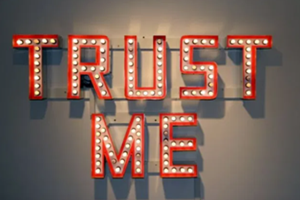A reader faces a crisis of self-confidence when considering a higher-level job in the August 4, 2020 Ask The Headhunter Newsletter.
Question
How can a programmer know that they’re good enough to work as a developer? I found this interesting perspective posted on Quora from someone who has worked in software a long time: “If I only applied for jobs I was qualified for, I’d still be living with my parents.” The person said some companies will take a chance on you. Do you find this to be true?
Nick’s Reply
First, let’s clarify something for readers who don’t know a lot about computer software jobs. In simple terms, a programmer writes the code for a software project. A software developer can code, but is involved in almost all aspects of the project, including creating the concept for a product, designing it, and following it through to production. (Of course, not every programmer wants to become a developer!)
But what we’re going to discuss applies to almost any kind of job, and it applies to your desire to do more so you can earn more.
A chance at a higher-level job
I like that quote: “If I only applied for jobs I was qualified for, I’d still be living with my parents.”
Put another way, loads of employers may reject you because you haven’t already done the job they want to fill. They want to hire someone who’s been doing the job for the last five years — for less money. But you need just one employer to give you a chance to do something new and more advanced for higher pay. So you have to reach!
There are employers that will hire you because they need help and because they believe you will be able to rise to the demands of a higher-level job than you’ve ever had.
I find this to be true in almost all areas of work, not just programming and software development. Some of the best, most highly experienced professionals I know earned their chops by talking their way into jobs they had never done before. They learned through self-study, by taking necessary courses, by doing and by learning from others. I refer to them as people who can ride a fast learning curve without falling off. Companies hire them not just because of what they can do, but for what they can learn to do.
A programmer is good enough to work as a developer if they can show they are good enough, and if the employer allows for a learning curve (and perhaps also provides mentoring or training). For the employer to take a chance putting you in a higher-level job, you must take a chance and try to justify it.
Find an employer that values learning
Peter Cappelli, a labor researcher I know at the Wharton School, has studied why people can’t get hired. He found that one big reason — obviously — is lack of skills. But he also found that there’s a shortage of specific skills because many employers don’t offer existing employees the training required to do more sophisticated work. They’d rather hire someone new who doesn’t need training.
Cappelli found that over the past 40 years employers drastically reduced their investment in training and development. I think this is partly the reason people started “job hopping.” They want to do new things. Programmers want to be developers. Customer service workers want to be be sales people. Bookkeepers want to be cost accountants.Some of these people make a leap by finding employers who welcome them. Moving up in your chosen career requires learning, even when employers don’t value training. So you may need to get your own training.
Help an employer take a chance on you
You cannot wait for an employer to judge whether you’re “good enough” to do a more sophisticated job. Figure it out yourself first, then help the employer take a chance on you. You may invest in appropriate training, or you may study and practice on your own. Then prepare a mini-business plan showing how you will do the job you want.
Your plan might include some guesswork because you can never know all you need to write up this kind of plan. But what impresses a good manager is how you defend and support your plan. If you can explain this clearly and simply, a good manager may decide you are a good investment and may be more likely to take a chance on you. (See The New Interview.)
It’s up to you to make a commitment, then don’t let your new boss down. Do what’s necessary to come up to speed quickly and prove you’re smart, dedicated, capable and dependable. I know managers who would jump over 10 complacent software developers to hire an enthusiastic programmer who shows evidence of self-motivation and an ability to learn fast.
You may have to hear a lot of No’s before you get to one Yes. But you need only one Yes.
Please don’t misunderstand. I’m not suggesting that any programmer can start managing a software development project, or that any bookkeeper can get hired as a cost accountant. But if you apply only for jobs you are qualified for today, you’ll never get the chance to demonstrate that you can ride a fast learning curve to the next step in your career.
How do you know you’re good enough? When you can convince that manager.
Do you ever apply for jobs that you’re probably not qualified for? Tell us how you pulled it off! Is it better to wait for a promotion than to change employers to move up? Is this a chicken-or-egg problem, since employers want to hire without offering any training?
: :




 Job applicants are often so grateful to get an offer that they cast prudence aside and put their future in jeopardy. Don’t succumb to the thrill of an incomplete job offer. I would never, ever accept an offer I didn’t have in writing, and I’d certainly never resign another job to accept it. Any company that declines to put it in writing is trouble.
Job applicants are often so grateful to get an offer that they cast prudence aside and put their future in jeopardy. Don’t succumb to the thrill of an incomplete job offer. I would never, ever accept an offer I didn’t have in writing, and I’d certainly never resign another job to accept it. Any company that declines to put it in writing is trouble.
 I’ve been at my current job about ten months. My first review will be coming up but no one has brought up anything about it. Other employees tell me it’s rote. The boss gives you feedback after filling out some forms, you sign them and then HR meets with you. I think my boss is happy with me. She’s had no complaints that I know about and I’m basically happy here except I’d like more interesting work. Should I be worried about my upcoming review?
I’ve been at my current job about ten months. My first review will be coming up but no one has brought up anything about it. Other employees tell me it’s rote. The boss gives you feedback after filling out some forms, you sign them and then HR meets with you. I think my boss is happy with me. She’s had no complaints that I know about and I’m basically happy here except I’d like more interesting work. Should I be worried about my upcoming review?




 You get a lot of questions. I thought you might enjoy an answer I discovered.
You get a lot of questions. I thought you might enjoy an answer I discovered.
 I am an executive at a large U.S. bank. I was approached by a headhunter and have had serious and positive discussions with a company he represents. We were at the next stage of me speaking with the CEO of the company. However, it turns out that the company is a business client of my bank and the CEO of the company is good friends with my boss. On account of this, the CEO is not comfortable meeting with me. The headhunter informed me that the CEO has asked me to resign or notify my boss of my intention to resign before he will meet with me and resume discussions. While they have indicated that they would then “fast track” the process immediately after that, it’s not a guaranteed offer. This seems absurd to me. The headhunter tells me this is not unusual at my high level, but I have never heard of such a practice. What are your thoughts?
I am an executive at a large U.S. bank. I was approached by a headhunter and have had serious and positive discussions with a company he represents. We were at the next stage of me speaking with the CEO of the company. However, it turns out that the company is a business client of my bank and the CEO of the company is good friends with my boss. On account of this, the CEO is not comfortable meeting with me. The headhunter informed me that the CEO has asked me to resign or notify my boss of my intention to resign before he will meet with me and resume discussions. While they have indicated that they would then “fast track” the process immediately after that, it’s not a guaranteed offer. This seems absurd to me. The headhunter tells me this is not unusual at my high level, but I have never heard of such a practice. What are your thoughts?
 When you’re hiring, how do you know who you want to hire? By that I mean, how do you identify the job you need done, the skills and potential for growth you require in a job candidates? I admit I’ve made some hiring mistakes as a manager, but it’s awfully hard to pinpoint what I’ve done wrong. It’s just as hard to figure out what I did right when I picked my best staff members!
When you’re hiring, how do you know who you want to hire? By that I mean, how do you identify the job you need done, the skills and potential for growth you require in a job candidates? I admit I’ve made some hiring mistakes as a manager, but it’s awfully hard to pinpoint what I’ve done wrong. It’s just as hard to figure out what I did right when I picked my best staff members!
 Before this coronavirus thing hit I had decided it’s finally time to leave my crummy job. I say crummy but it pays the bills. With record numbers of people having no job at all, believe me, I’m grateful I have a job. I took on more tasks from people who were furloughed. But I could become one of those millions out of work any day now. Guess you could say I’m scared. The thing is, even though I’m working from home, there’s no time to look for a job! Is it unreasonable to want a better job right now? How do I do it while working and during this COVID-19 disaster? Thanks!
Before this coronavirus thing hit I had decided it’s finally time to leave my crummy job. I say crummy but it pays the bills. With record numbers of people having no job at all, believe me, I’m grateful I have a job. I took on more tasks from people who were furloughed. But I could become one of those millions out of work any day now. Guess you could say I’m scared. The thing is, even though I’m working from home, there’s no time to look for a job! Is it unreasonable to want a better job right now? How do I do it while working and during this COVID-19 disaster? Thanks!
 It just happened again. An interviewer asked me one of those trick questions. “What is your biggest weakness?” I actually researched this one. There are all kinds of
It just happened again. An interviewer asked me one of those trick questions. “What is your biggest weakness?” I actually researched this one. There are all kinds of